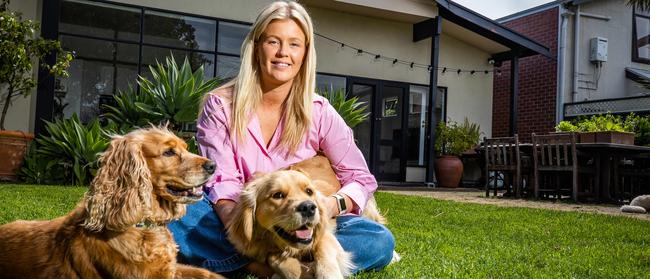Charging children board: when to ask them to pay
As surging household costs sting family budgets, many young adults get a free ride from mum and dad. Should they pay board?

SmartDaily
Don't miss out on the headlines from SmartDaily. Followed categories will be added to My News.
One of the toughest questions facing parents of adult children living at home is when to start charging them board.
The proportion of young men and women aged 18 to 29 still living with their parents has surged in recent decades and now tops 55 per cent, but some parents remain reluctant to ask their kids to pay.
Board can benefit both sides’ financial strength, although experts generally agree it is probably best left until the children begin full-time work.
Beyond Bank national operations manager Sophie Scott-Young says charging board seems less common than in the past.
“With house prices rising over the past ten years, parents have been hesitant to charge their children board, fearful that this will take away from their ability to save for their own first home,” she says.
Scott-Young says board should be considered once the child is earning enough to pay their own way.
“They should remember they are setting their children up for independence as adults as learning to juggle their finances is a life skill,” she says.

HOW MUCH?
There are differing methods financial specialists and psychologists suggest for calculating board. Some suggest complex formulas involving a percentage of bills and floor space, some say a proportion of income typically ranging from 10 to 30 per cent, while others pull a figure out of thin air.
“Most Australians find that at least 30 per cent of their weekly wage goes towards rent or their mortgage, so this is a good place to start so they are prepared for when they move out on their own,” Scott-Young says.
She says uses of board vary too. Some parents contribute it towards household expenses, while others save a portion of it so it can be later given back as “a great gift”.
Money coach Karen Eley says it is appropriate to wait until the child has finished full-time studies before charging board, “particularly if the child is working while still in school and using their income to supplement their discretionary spending”.
Eley says when charging board, parents should consider factors such HELP debts, car loans and other finance, time spent at home and food eaten at home.
“You don’t want to charge them too much, as it can bring up resentment and damage your relationship with your children,” she says.
“You can ask their input as to what they think is fair.
“I most commonly see a percentage of between 20 and 30 per cent of the adult child’s net income.”
SECRET SAVINGS
Eley sees some parents using board payments for household bills and others who “secretly intend the money to be given back to the children”.
“I’ve also seen parents use the board to put into a redraw or offset account, but it is earmarked to be returned to the children when they purchase their own property. The parents are, however, getting the benefit of lower interest costs on their mortgage in the years they’re paying board.”

Nursing graduate Lulu Tierney, 22, is about to start working full-time and will be paying $100 per week board.
“This is less that what I would have had to pay if I had moved out with friends, so I am comfortable with this for now,” she says.
“While I was studying, Mum and Dad did not charge me board although I worked different casual jobs. I used this money to buy my own clothes and for going out to dinner et cetera.
“I eat out quite a bit so it will be interesting to see if I can still manage that. I might be taking my own lunch to work while I get used to it. It will also teach me to budget a little better as I haven’t really had to do this so far living at home.”
BOARD’S VALUABLE LESSONS
• Financially responsibility, and the differences between needs and wants.
• Recognising how certain costs must be paid first to keep a roof over your head.
• Motivation to seek employment.
• Respect for parents’ home ownership.
• A way to show future lenders or landlords you can save regularly.
• Promoting teamwork within a family.
Source: Beyond Bank, Womentalkingfinance.com.au
Originally published as Charging children board: when to ask them to pay





